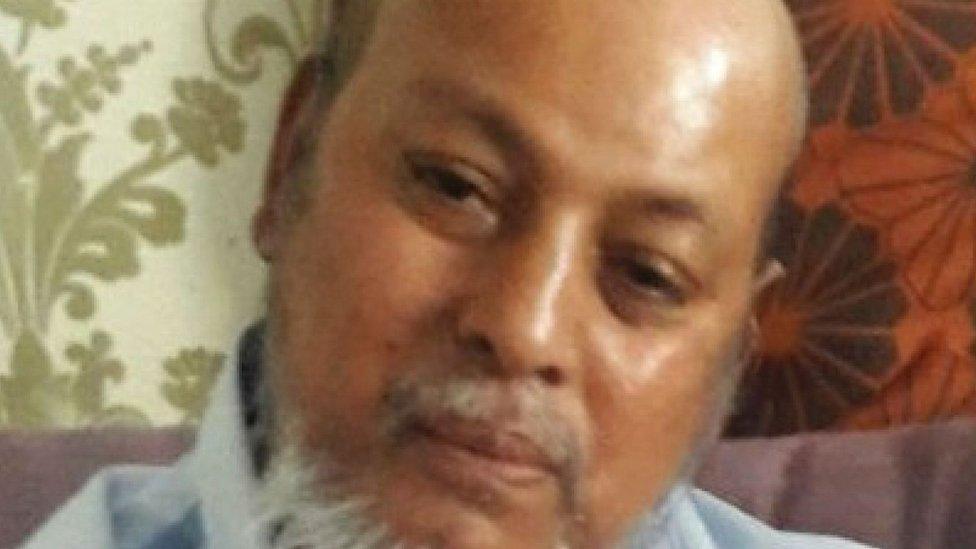Finsbury Park terror attack: Victim remembered on fifth anniversary
- Published
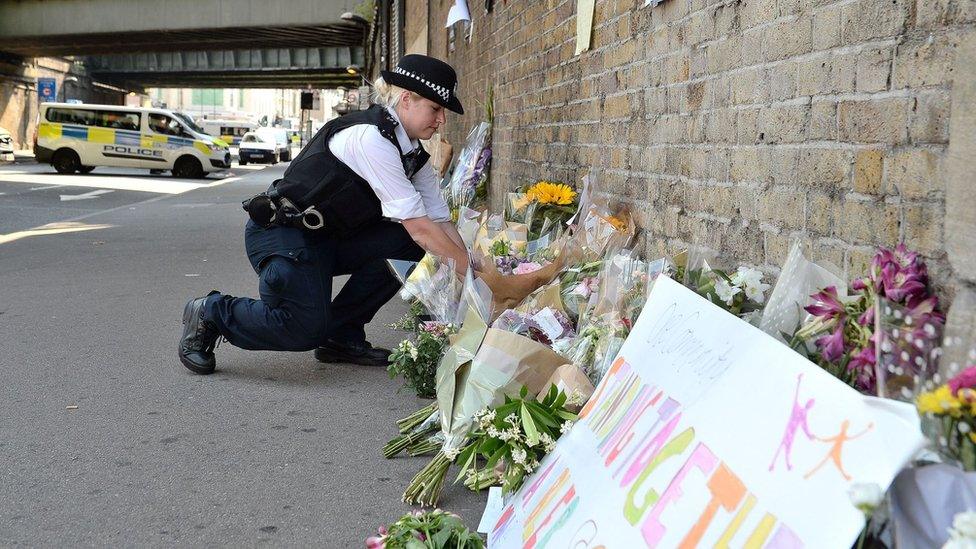
A police officer lays floral tributes at the scene of the attack
People gathered to remember the victim of the Finsbury Park terror attack on its fifth anniversary on Sunday.
Makram Ali, 51, died and 11 were injured when Darren Osborne ploughed a van into worshippers gathered outside the Muslim Welfare House shortly after evening Ramadan prayers in 2017.
Speaking at the memorial, mosque chairman Mohammed Kozbar claimed Islamphobia was "much worse now".
Sadiq Khan said that "London stands united against terrorism".
Prime Minister Boris Johnson also paid tribute to the attack's victims.
He tweeted: "Five years on from this cowardly act of terrorism my thoughts are with the family of Makram Ali and those affected by the Finsbury Park Mosque attack.
"Freedom of worship and tolerance for different faiths is fundamental to our values.
"Terrorists will never change our way of life."
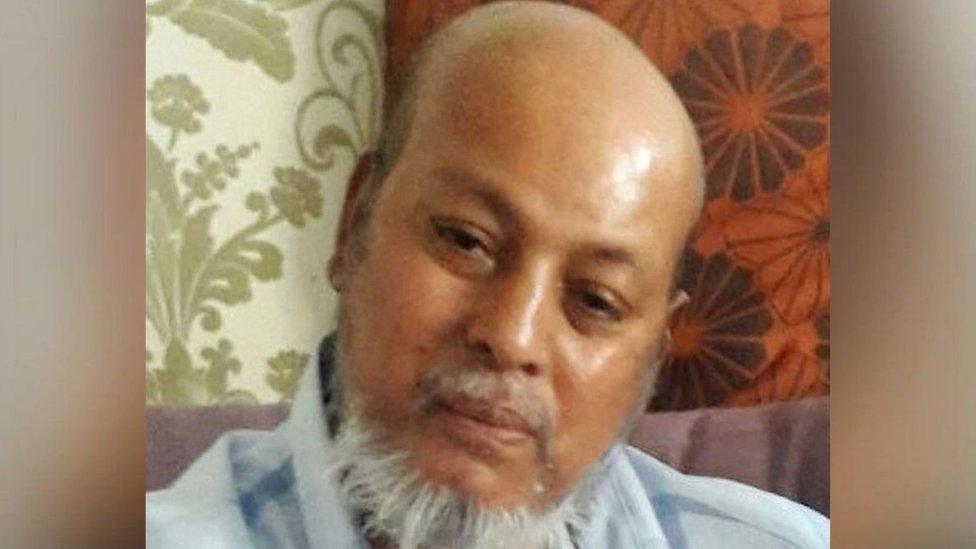
Mr Ali died after Osborne deliberately drove at worshippers
Mr Khan, the current mayor of London, said: "Our thoughts are with Makram's family and everyone who was impacted by this dreadful attack.
"London stands united against terrorism. We will always celebrate and cherish the incredible diversity of our city.
"That senseless attack five years ago was an assault on our shared values of openness, freedom and respect.
"But the solidarity shown by all communities in our city in the wake of the attack showed that we will never let terrorists win by dividing us."

'He never had a bad word to say' BBC London's Sonja Jessup
Five years since Ruzina Akhtar lost her father, Makram Ali, she takes us to the park where he used to bring his grandchildren, and where there's now a plaque dedicated to him.
She tells me he loved his family, was always telling jokes- even when they begged him to stop- and they'd tease him over his habit of falling asleep on buses and ending up in the wrong place.
The terror attack that night not only took her father from her, but left her family and many of London's Muslim community in fear. Many had worried that Islamophobia would increase following the terror attacks just weeks earlier at Westminster Bridge and London Bridge.
Ruzina told me her mother was afraid to leave the house in case she was attacked for wearing a headscarf.
Although the number of Islamophobic hate crimes recorded by the Metropolitan Police have fallen over the last five years, the group Tell MAMA, who monitor such incidents, say many are not reported. They say their own figures show a rise of 45% since 2017. Many London mosques have tightened their security.
Ruzina Akhtar says the anniversary of the attack is always a difficult day, but the family are determined to focus on the good memories.
She tells me they still have "granddad's chair", and the children argue over who gets to sit in it.
"I don't know anyone like him who's 24-7 happy", she told me.
"He never had a bad word to say about anyone."

While remembering the attack's victims, Mr Kozbar said: "We as Muslims are still feeling the effects of this attack and we won't feel safe until Islamophobia is taken seriously by the authorities and the police."
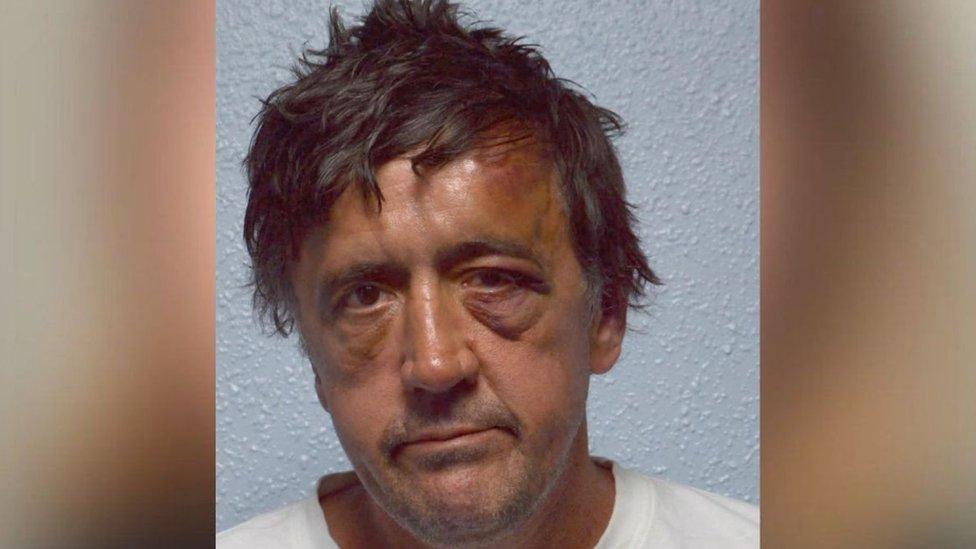
Osborne is currently serving a minimum of 43 years for the terror attack
Osborne, from Cardiff, was found guilty of terrorism-related murder and jailed for life in February 2018.
A judge ordered that he spend at least 43 years behind bars after being "rapidly radicalised" online in the months before the attack.

Follow BBC London on Facebook, external, Twitter , externaland Instagram, external. Send your story ideas to hellobbclondon@bbc.co.uk, external
Related topics
- Published19 June 2017
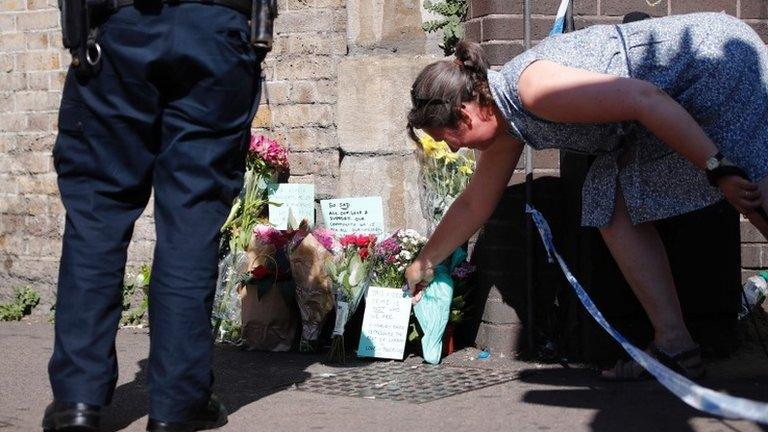
- Published1 February 2018
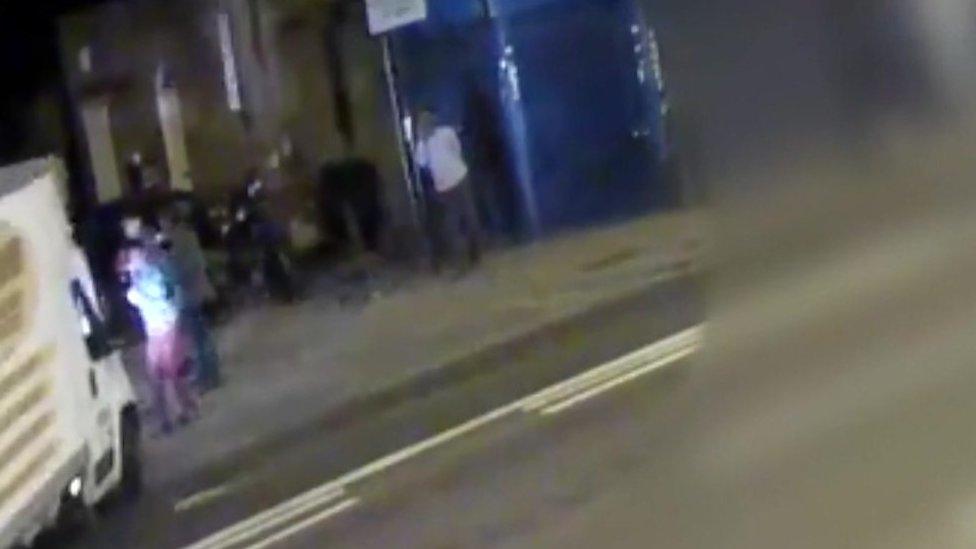
- Published26 June 2017
